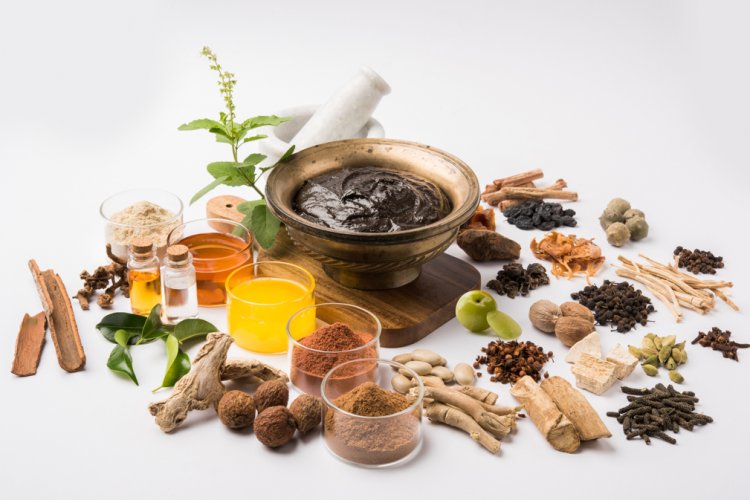A Comprehensive Guide to Herbal Remedies: Choosing and Using Safely
Herbal remedies, derived from plants, have long been used for various health purposes, ranging from alleviating symptoms to promoting overall well-being. However, it's crucial to approach herbal remedies with caution as they are not regulated or tested like conventional medicines. This guide aims to provide insights into the safe selection and utilization of herbal remedies.

Understanding Herbal Remedies
Herbal remedies fall under the category of dietary supplements rather than pharmaceutical drugs. Unlike medicines, they are not subject to rigorous regulation or testing before being available for purchase. Consequently, there are uncertainties regarding their efficacy, safety, and accuracy of labeling. It's essential to acknowledge that herbal remedies may not always deliver the promised benefits and could potentially contain undisclosed ingredients or contaminants.
The Myth of Natural Equating to Safety
While the notion of using natural substances for healing purposes appears appealing, it's imperative to debunk the myth that "natural" equals "safe." Many herbal remedies carry risks of adverse effects, interactions with medications, and toxicity, particularly when consumed inappropriately. For instance, substances like kava, St. John's Wort, and yohimbe, despite their perceived therapeutic properties, can pose significant health hazards if not used cautiously.
Tips for Safe Selection and Usage
To navigate the realm of herbal remedies safely, consider the following guidelines:
-
Scrutinize Product Claims: Be skeptical of exaggerated claims portraying herbal products as miraculous solutions or claiming superiority over conventional treatments. Unrealistic promises are often red flags indicative of unreliable products.
-
Disregard Anecdotal Evidence: While personal anecdotes may be compelling, they lack scientific validity. Relying solely on anecdotal evidence can lead to misplaced trust in herbal remedies. Seek advice from healthcare professionals who can offer evidence-based insights.
-
Consult Healthcare Providers: Prior to trying any herbal remedy, consult with a healthcare provider to assess its safety, efficacy, potential risks, and interactions with existing medications. Healthcare professionals can provide personalized guidance tailored to individual health needs.
-
Opt for Certified Products: Choose herbal products from reputable companies that carry certifications such as "USP Verified" or "ConsumerLab.com Approved Quality." These certifications ensure that the products undergo rigorous testing for purity and quality.
-
Exercise Caution with Special Populations: Avoid administering herbal supplements to children, older adults above 65 years, pregnant or breastfeeding individuals, and those undergoing surgery without prior consultation with a healthcare provider.
-
Disclose Herbal Usage: Inform healthcare providers about the herbal remedies you're using, as they can impact the efficacy and safety of prescribed medications and treatments.
While herbal remedies offer potential health benefits, navigating their usage requires informed decision-making and caution. By adhering to the outlined guidelines and seeking professional advice, individuals can harness the therapeutic potential of herbal remedies while minimizing associated risks. Remember, an evidence-based approach is paramount in ensuring safe and effective utilization of herbal remedies in promoting holistic well-being.
#HerbalRemedies #NaturalSupplements #AlternativeMedicine #DietarySupplements #HealthSupplements #PlantBasedRemedies #HolisticWellness #HerbalHealth #SafeHerbalUsage #EvidenceBasedHealthcare #WellnessTips #HealthGuidance #HealthyLiving #HerbalMedicine #HealthAwareness #MedicalAdvice #ConsultYourDoctor #HerbalSafety #WellnessJourney #HealthCareProfessionals #HerbalEfficacy #HolisticHealth #HerbalWisdom #NaturalHealing #SafeHealthChoices #HerbalWellnessTips #HealthyLifestyle #HealthAwareness #WellnessEducation #HerbalGuidance #SafeRemedies #HealthyChoices #PlantMedicine #NaturalHealingJourney
Disclaimer:
The information provided in this article is for educational purposes only and should not be considered medical advice. If you have any health concerns or are experiencing symptoms, it is important to consult with a healthcare professional, such as a doctor or clinic, for proper diagnosis and treatment. Always seek the advice of your doctor or other qualified health provider with any questions you may have regarding a medical condition. Do not disregard professional medical advice or delay in seeking it because of something you have read in this article.
What's Your Reaction?





















